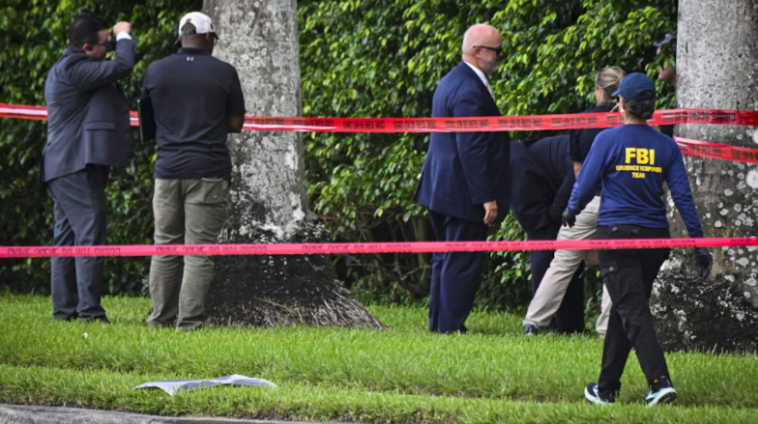In a stunning revelation, the U.S. Department of Justice released a letter on Monday written by Ryan Routh, the man accused of attempting to assassinate former President Donald Trump at his Florida golf club. In the letter, Routh allegedly admitted his intentions to kill Trump and expressed frustration over his failure, urging others to complete the mission he set out to accomplish. The letter is now being used by prosecutors in court to argue for Routh’s continued pretrial detention, citing the grave threat he poses.
“This was an assassination attempt on Donald Trump, but I failed you,” Routh reportedly wrote. “I gave it all the effort and determination I could, but it wasn’t enough. Now it’s up to someone else to finish the job. I am offering $150,000 to anyone who can succeed where I did not.”
The contents of the letter provide a chilling insight into Routh’s mindset. He criticized Trump harshly, claiming that the former president is unfit for any position of power, let alone the presidency. “Everyone from the youngest to the oldest knows Trump is unfit to be anything, much less the President of the United States. Our presidents should, at the very least, represent the moral fiber of America—kindness, compassion, selflessness, and a commitment to humanity,” the letter continued.
Routh’s disdain for Trump extended into his foreign policy, as he referenced Trump’s decision to cut ties with Iran, an act Routh likened to “childish behavior,” adding that the former president’s actions destabilized the Middle East. “Trump severed relations with Iran like an impulsive child, and now the entire Middle East is unraveling,” he wrote.
Routh, who had previously self-published a book, further elaborated on his extreme views in that work, even urging the Iranian government to take direct action against Trump. According to national security experts, Routh’s writings and behavior raise concerns that hostile foreign actors, like Iran, might seek to exploit domestic dissatisfaction with Trump. Indeed, Iran has already attempted to interfere with Trump’s political career, with reports of hacking attempts on Trump’s campaign, the sharing of sensitive information with the Biden-Harris team, and alleged assassination plots targeting Trump.
Routh’s criminal history complicates his case further. His prior convictions made it illegal for him to own firearms, yet authorities discovered evidence suggesting that he had pursued obtaining weapons before the failed assassination attempt. Furthermore, Routh’s political contributions paint a picture of his ideological leanings. Federal Election Commission (FEC) records show that between 2019 and 2020, Routh, while residing in Hawaii, made multiple donations to Democratic candidates through the fundraising platform ActBlue. His contributions went to a range of progressive figures, including Beto O’Rourke, Andrew Yang, Tom Steyer, Tulsi Gabbard, and Elizabeth Warren.
As prosecutors argue for Routh’s continued detention, citing the violent nature of the attempted assassination and his continued threat to public safety, the case has prompted broader discussions about the nature of political violence in the U.S., foreign interference in domestic affairs, and the radicalization of individuals on both sides of the political spectrum. Routh’s letter serves as a chilling reminder of how deeply some individuals may be motivated by extremist ideologies and the lengths they are willing to go to achieve their objectives.
The court’s decision on whether to keep Routh in custody will undoubtedly be watched closely, not just for the legal precedents it sets, but for the broader implications it may have on the ongoing political climate in the United States.
?WOW: The DOJ has released a letter written by Ryan Wesley Routh offering $150,000 to anyone who could ‘finish the job’ on President Trump pic.twitter.com/Cz4qCIMJai
— Benny Johnson (@bennyjohnson) September 23, 2024


